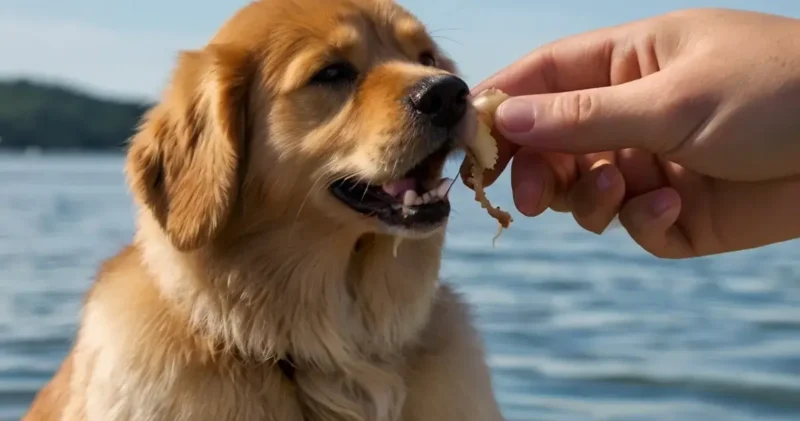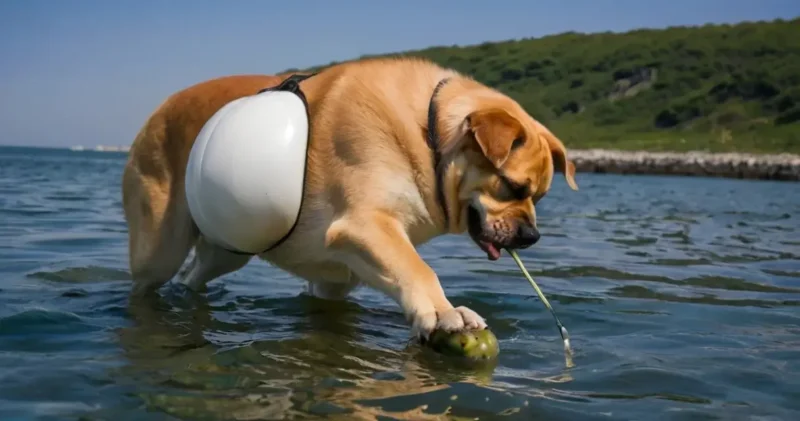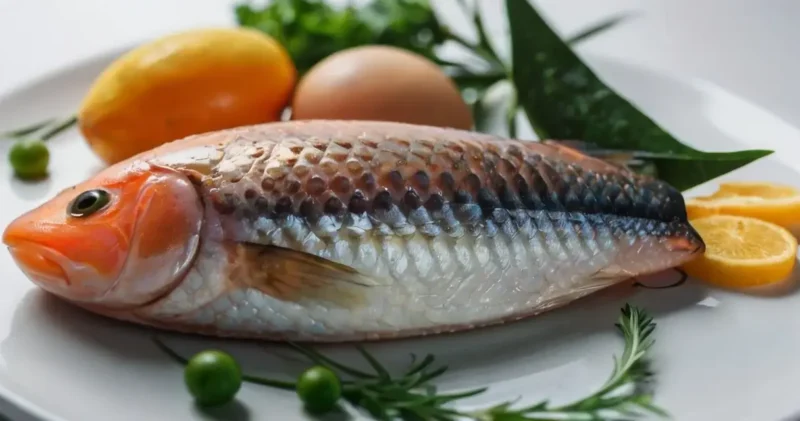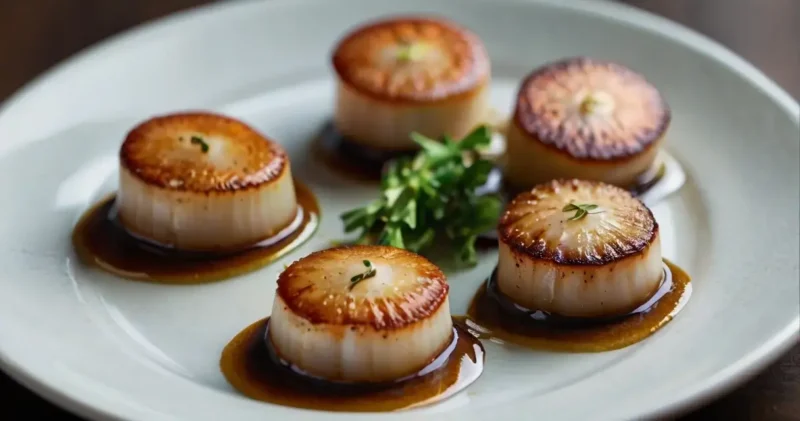
Scallops, those delectable sea delicacies savored by humans, harbor a surprising hidden talent: they can swim! But can our canine companions partake in these aquatic wonders too? While many veterinarians caution against feeding scallops to dogs, there exist differing opinions regarding this recommendation. Some researchers suggest that dogs can indeed consume scallops, much like other seafood, but only in minimal quantities. With their rich mineral and vitamin content, scallops can potentially serve as a wholesome treat for your furry friend.
In our quest for a comprehensive answer to the question “Can dogs eat scallops?” let’s delve into this article, where every detail is thoroughly discussed.
What are Scallops?
Most readers are likely familiar with scallops, but for those who may not be acquainted with them, let’s delve into a brief overview. Scallops belong to the category of bivalve mollusks, a diverse group of marine creatures characterized by soft bodies enclosed within shells. These shells consist of two parts, commonly referred to as valves.
In simpler terms, scallops are a type of shellfish found in oceans, seas, and lakes, belonging to the Pectinidae family. They are renowned for their tender, sweet white flesh, protected by sturdy, solid valves. The tender part, often referred to as the adductor muscle, is the edible portion of the scallop, responsible for opening and closing its shell. Additionally, scallops possess a distinctive shiny orange section known as the coral
Scallops are further divided into two main categories. Saltwater scallops and freshwater scallops. Here are some key differences between them.
| SALTWATER SCALLOPS | FRESHWATER SCALLOPS |
|---|---|
| Saltwater scallops often have a slightly brinier taste due to the higher salinity levels of their marine environment. | Freshwater scallops typically have a cleaner, milder taste compared to saltwater scallops. |
| Saltwater scallops have a rigid texture due to water they lived in. | Freshwater scallops have a softer texture since they live in calmer water environment. |
| Saltwater scallops often tend to be larger in size from 2-6 inches. | Freshwater scallops typically tend to be smaller in size from 1-2 inches. |
Can Dogs Eat Scallops?
Dogs can eat seafood because it’s a good protein source. However, it’s important to note that only certain types of seafood are suitable for dogs. This raises the question, “Can dogs eat scallops?”
While scallops themselves are not toxic to dogs, it’s not advisable to incorporate them regularly into their diet. Scallops are beneficial for dogs only when consumed in moderation. Although many veterinarians advise against allowing dogs to consume scallops, in my personal opinion, formed after extensive research, dogs can consume scallops in very minimal quantities due to their rich array of vitamins and minerals, which can be beneficial for your dog’s health. Conversely, scallops may induce digestive upset in some dogs, particularly if they are not accustomed to eating seafood or if they ingest them in large quantities.
To buy scallops at the cheapest price, you can click here at the link below:
https://amzn.to/3IP7pOC
Do Dogs Like Scallops?
Dogs, like people, have varying taste preferences. Their interest in scallops would depend on factors like their past experiences with seafood, their overall sense of smell and taste, and even the way the scallop is prepared. Being a pet advisor, I have interacted with a number of dogs and examined their likes and dislikes.

According to my observation, some dogs may enjoy the taste and texture of scallops as they are a type of seafood with a distinct flavor. This because of following reasons:
- Dogs are carnivores by nature, so they often enjoy meat-based foods. Chicken, beef, turkey, and lamb are popular options. You can seldom opt for scallops also.
- Some dogs enjoy the taste of fish, such as salmon or whitefish. Scallops might be something similar for them.
- Some dogs exhibit interest in eating sweets. While some commercial scallops are sweet in taste, some dogs may love eating scallops.
Are Scallops Good for Dogs?
The most interesting fat of scallops is they are low in fat and calories but are rich in vitamins and minerals. Here is a list of vitamins and minerals found in scallops along with their health benefits on your lovely dog.
Proteins:
Proteins play several vital roles in the health and well-being of dogs. Here are some benefits of proteins for dogs:
- Scallops are rich in proteins which are essential for building and repairing tissues, muscles, and organs in the body.
- Proteins serve as the building blocks for enzymes, which are essential for various biochemical reactions in the body.
- Proteins help in controlling body function and supports growth process in both dogs and humans.
- A protein-rich diet helps promote shiny, lustrous fur and supports overall skin health.
Many components of immune system are entirely made of proteins. A healthy immune system helps your dog in fighting against diseases.
Phosphorous:
Phosphorous is involved in numerous cell processing in dogs. Let’s have a look on its advantages for dogs:
- Phosphorus is necessary for proper muscle contraction and nerve function in dogs.
- Just like calcium, phosphorous is equally necessary for strong bones and teeth.
- Phosphorous is involved in energy metabolism, DNA synthesis, and cell signaling.
Selenium:
Selenium is a mineral found naturally in soil, water, and some foods. It also has a number of benefits on dogs. Let’s have a look on them:
- Selenium acts as an antioxidant in the body, helping to neutralize harmful free radicals and reduce oxidative stress.
- It plays a role in thyroid function and metabolism regulation in dogs.
- It helps dogs defend against infections, viruses, and other pathogens.
Zinc:
Scallops are a source of zinc. It is essential for:
- It plays a role in sperm production and maturation in males and is involved in the synthesis of reproductive hormones in both males and females.
- Zinc is necessary for proper growth and development in puppies and young dogs.
- Zinc is also involved in the sense of taste and appetite regulation in dogs.
- Zinc is crucial for maintaining healthy skin and a shiny coat in dogs.
Omega 3 fatty acids:
Omega 3 fatty acids are widely found in scallops. They are equally good for dogs and humans.
- Omega-3 fatty acids, particularly eicosapentaenoic acid (EPA) and docosahexaenoic acid (DHA), help reduce inflammation, and decrease itching and irritation associated with skin conditions like allergies and dermatitis.
- Omega-3 fatty acids support heart health in dogs by helping to maintain normal cardiac function and reduce the risk of cardiovascular disease.
- Omega-3 fatty acids, particularly DHA, are important for brain development and cognitive function in puppies and young dogs.
- They improve visual development and retinal health.
Magnesium
Magnesium is an essential mineral found in scallops that plays several important roles in the health and well-being of dogs.
- Magnesium is crucial for proper muscle function in dogs.
- Magnesium plays a role in bone metabolism and mineralization in dogs. It helps maintain bone density and strength.
- It helps regulate neurotransmitter activity, nerve impulse transmission, and synaptic signaling.

Though scallops don’t contain as many minerals as listed above, they do contain small amounts of vitamin E and some B vitamins, including thiamin, riboflavin, niacin, pantothenic acid, and vitamin B6. To know more about what vitamins are good for your dog, you can click here.
Risks of Feeding Unusual Number of Scallops to Dogs
The precise minimal quantity of scallops suitable for dogs varies depending on factors such as the dog’s size, age, overall health, and individual tolerance to seafood. As a rule of thumb, for small to medium-sized dogs, introducing a small piece of cooked scallop, roughly the size of a pea, can serve as a suitable starting point. Larger dogs may tolerate slightly larger portions.
If you have even mistakenly fed your dog with a good quantity of scallops, there are a number of chances that one of following health concern might trigger.
- Obstruction or Choking: If scallops are not properly prepared or if they contain shells or other non-edible parts, there is a risk of obstruction or choking in dogs. Ingesting large pieces of scallop shells or other foreign objects can lead to gastrointestinal blockages, which may require surgical intervention.
- Mercury Toxicity: Like many seafood, scallops may contain traces of mercury, which can be harmful to dogs if consumed in large amounts over time. Mercury toxicity can lead to neurological problems, kidney damage, and other serious health issues.
- Nutritional imbalance: Although scallops are less in fat and rich in proteins and minerals which are essential for dog’s help, but it also lacks a number of vitamins and minerals that are equally essential for proper growth of your canine fellow. Thus, making your dog rely only on scallops as a primary source of vitamins and minerals can result in deficiency of important minerals.
- Digestive Upset:If dogs consume too many scallops at once, they may experience digestive upset such as vomiting, diarrhea, or abdominal discomfort. This could be due to the richness of the seafood or if the dog is not accustomed to eating it.
You can also visit the articles, can dogs eat pig feet and can dogs eat cow hooves?
Can Dogs Eat Raw Scallops?
Many experts suggest that raw scallops contain harmful bacteria, parasites, or harmful pathogens such as Salmonella or E. coli, that cannot be defended by an average dog’s immune system so it’s better to avoid feeding your dog raw scallops.
Additionally, raw seafood can be more difficult for dogs to digest and may increase the risk of gastrointestinal upset or foodborne illness. Cooking seafood thoroughly helps kill harmful bacteria and parasites, making it safer for consumption.
Can Dogs Eat Cooked Scallops?
Yes, dogs can eat cooked scallops. Cooking scallops kills all the bacteria and parasites making them safer for dogs to consume. However, it’s important to observe that cooked scallops are free from every kind of additives including oils, sauces, and everything toxic for dogs.

At this point you have read a lot. Let me tell you my personal story of feeding my dog with scallops dipped in oyster sauce.
One busy evening, while preparing dinner, I accidentally gave my dog some scallops with oyster sauce. He gobbled them down happily, but soon he got really sick with diarrhea. I felt terrible! I promised myself to always double-check his food from now on. After it I have served him multiple times with scallops but the plain ones.
Can Dogs Eat Shrimps and Scallops?
Yes, dogs can eat scallops and shrimps but there are a few important factors which you must consider before letting your dog attack on meal. Let’s have a look onto them:
- Scallops and shrimps must be cooked properly. Cooking eliminates every kind of bacteria and parasites making it safe for your dog.
- Make sure, you don’t serve it with any seasonal additive, any kind of oil or sauce.
- You must keep a check on portions. Many dogs are sensitive to sea food. You must feed it in minimal quantity to avoid unhappening in future.
How to Cook Scallops for Dogs?
Many of you must be thinking how can we feed scallops to dogs? What is the correct method for their preparation that is not harmful for dogs? Cooking scallops for dogs is a simple process. Here’s a basic recipe to prepare cooked scallops for your furry friend:
- All you need is frozen scallops and water.
- Freeze the scallops overnight in refrigerator.
- Rinse the scallops under cold water to remove any dirt or debris.
- Fill a pot with enough water to cover the scallops completely.
- Bring the water to a boil over medium-high heat.
- Once the water is boiling, carefully add the scallops to the pot.
- Cook the scallops for 2-3 minutes. Do not overcook them.
- Remove the scallops from the pot using a slotted spoon and allow them to cool before serving to your dog.
- Once cooled, you can chop the scallops into smaller, bite-sized pieces for your dog, if desired.
You can also steam or bake the scallops instead of boiling them, if preferred. Just make sure not to add any seasonings or oils during the cooking process.
Is it Better to Buy Fresh or Frozen Scallops for Dogs?
When it comes to scallops, it is always better to purchase fresh scallops for your dog. Here are a few reasons for it:
-
Quality and Nutritional Content: Fresh scallops retain more of their original nutritional content compared to frozen scallops, which may undergo some nutrient loss during the freezing and thawing process. Certain enzymes naturally present in scallops may become less active or denatured during freezing. Also, Water-soluble vitamins like vitamin C and certain B vitamins are sensitive to freezing. Fresh scallops also tend to have better texture and flavor, making them more enjoyable for your dog.
-
Preservatives: Frozen scallops may contain additives or preservatives to prolong their shelf life and maintain quality during freezing. While these additives are generally safe for human consumption, they may not be ideal for dogs. STPP, or Sodium Tripolyphosphate, is a common food additive used in frozen scallops and other seafood to retain moisture and improve texture. STPP can trigger gastrointestinal irritation, such as vomiting or diarrhea, in dogs especially if consumed in large amounts.
-
Risk of Contamination: Frozen scallops may pose a slightly higher risk of contamination compared to fresh ones, especially if they have been thawed and refrozen multiple times or if they were not properly handled and stored before freezing. Contaminated scallops can potentially harbor harmful bacteria or parasites that may cause foodborne illnesses in dogs.
What Other Sea Foods Can Dogs Eat Safely?
Sea food can be a good occasional treat for your dog, but only if fed in moderation. It helps improving cardiovascular health and boosts immune system. But now the question arises: “Are all sea food good for dogs?” No, all sea foods are not good for your dog’s health. There is only a selected group of sea foods that your dog can eat in minimal quantities. Here are they listed:
- Scallops
- Shrimps
- Crabs
- Sardines
- Whitefish
- Tuna
- Mussels
- Salmon
And a few other kinds.
Alternatives of Scallops and Other Sea Food for Dogs
Here are the recommended alternatives that your can eat instead of sea food:
- Poultry: Lean poultry options such as chicken, turkey, and duck are excellent sources of protein for dogs.
- Lamb: Lean cuts of lamb can be fed to dogs as an alternative protein source.
- Dairy: Plain, unsweetened yogurt and cheese can be included in your dog’s diet in moderation.
- Legumes: Legumes such as lentils, chickpeas, and beans can be added to your dog’s diet as a source of plant-based protein and fiber.
- Vegetables: Many vegetables, such as carrots, peas, and broccoli, can be cooked and served to dogs as nutritious additions to their diet.
Conclusion
Scallops can offer nutritional benefits for dogs, including protein, vitamins, and minerals. However, it’s essential to balance their intake with other components of a well-rounded diet. Incorporating scallops as an occasional treat, alongside other protein sources and nutrient-rich foods, can contribute to a varied and balanced canine diet.
FREQUENTLY ASKED QUESTIONS
Can dogs eat sauerkraut? A detailed guide








2 thoughts on “Can dogs eat scallops? Vet approved facts”